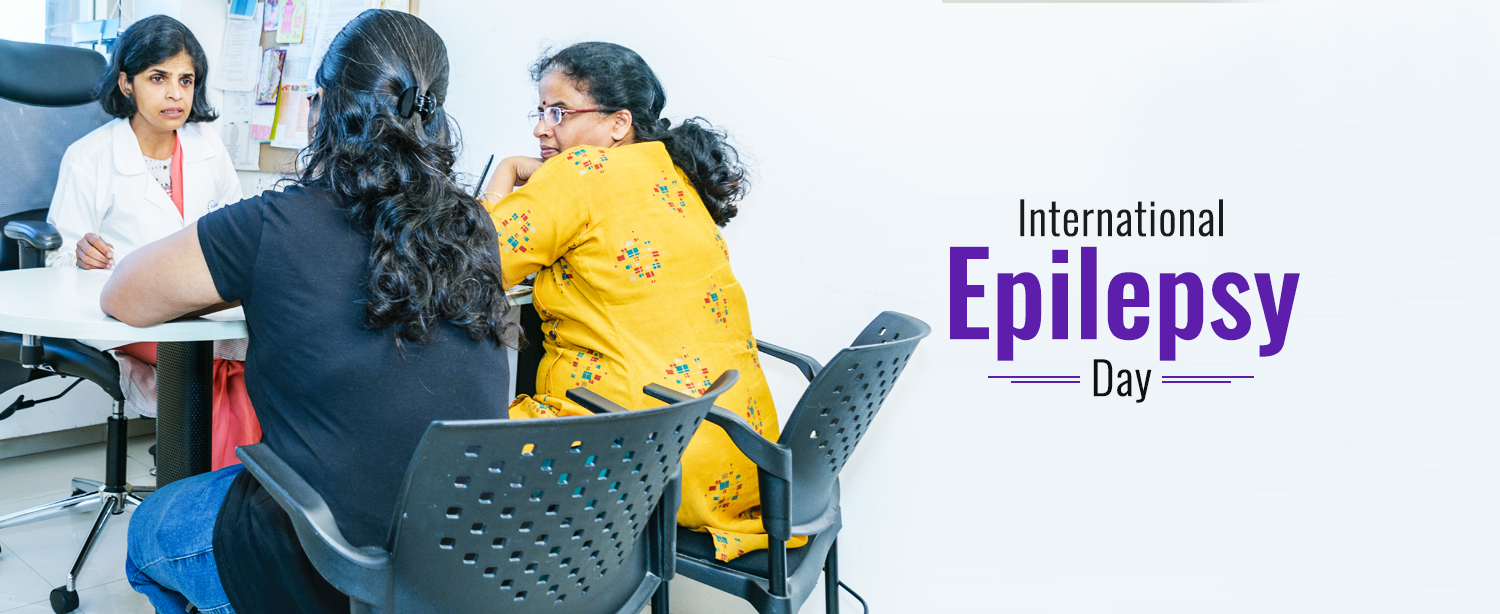Epilepsy is a chronic non-communicable disease of the brain that affects around 50 million people worldwide. It is characterized by recurrent seizures, which are brief episodes of involuntary movement that may involve a part of the body (partial) or the entire body (generalized). Seizure episodes are a result of excessive electrical discharges in a group of brain cells. Different parts of the brain can be the site of such discharges. Seizures can vary from the briefest lapses of attention or muscle jerks to severe and prolonged convulsions. Seizures can also vary in frequency, from less than 1 per year to several per day. It is estimated that there are more than 10 million persons with epilepsy (PWE) in India.
Epilepsy Symptoms
The main symptom of epilepsy is recurrent seizures. However, if a person experiences one or more of the following symptoms, they should seek medical attention, as it may indicate epilepsy:
- a convulsion with no fever.
- short blackouts or confused memory.
- sudden stiffness for no apparent reason.
- sudden falling for no apparent reason.
- intermittent fainting spells, during which they lose bowel or bladder control, frequently followed by extreme tiredness.
- temporary unresponsiveness to instructions or questions.
- peculiar changes in senses, such as smell, touch, and sound.
- jerking arms, legs, or body, which will appear as a cluster of rapid jerking movements in babies.
Causes of Epilepsy
Epilepsy has no identifiable cause in about half the people with the condition. In the other half, the condition may be a result of:
- Hereditary factors.
- Head trauma.
- Prenatal injury.
- Developmental disorders.
- Brain damage like stroke or brain tumours.
- Infectious diseases like meningitis or AIDS.
Key facts about Epilepsy
- Epilepsy is a chronic non-communicable disease of the brain that affects people of all ages.
- Nearly 80% of people with epilepsy live in low- and middle-income countries.
- It is estimated that up to 70% of people living with epilepsy could live seizure-free if properly diagnosed and treated.
- The risk of premature death in people with epilepsy is up to three times higher than for the general population.
- In many parts of the world, patients with epilepsy suffer from stigma and discrimination.
Epilepsy Diagnosis
A doctor will review an individual’s medical history and the symptoms they have experienced, including a description and timeline of past seizures, to diagnose epilepsy. Several types of imaging test, as well as neurological tests are used to diagnose epilepsy and find the type of it.
Epilepsy Medication
Most people with epilepsy can become seizure-free by taking one anti-seizure medication, which is also called anti-epileptic medication. Others may be able to decrease the frequency and intensity of their seizures by taking a combination of medications.
Epilepsy Surgery
When medications fail to provide adequate control over seizures, surgery may be an option. With epilepsy surgery, a surgeon removes the area of your brain that’s causing seizures. Doctors usually perform surgery in the below scenarios:
- Your seizures originate in a small, well-defined area of your brain.
- The area in your brain to be operated on doesn’t interfere with vital functions such as speech, language, motor function, vision or hearing.
Epilepsy Myths and Facts
Myth 1: If you’ve had a seizure, you have epilepsy.
Fact: A person is diagnosed with epilepsy when he or she has two or more unprovoked seizures, that occur more than 24 hours apart. But when something provokes a seizure, such as a binge drinking or sleep deprivation these are not related to epilepsy.
Myth 2: People with epilepsy are mentally ill or emotionally unstable.
Fact: Epilepsy is an umbrella term covering many types of seizures and epileptic disorders. It is a functional, physical problem, not a mental one, and it has many unidentifiable causes.
Myth 3: It’s easy to tell when a seizure is about to happen.
Fact: One cannot predict when seizures are beginning. However, once patients are aware of the seizure triggers they can avoid such situations.
Myth 4: Seizures hurt.
Fact: A person is unconscious and not in any pain during most seizures. However if the person falls down or has bit their tongue, they may experience discomfort.
Myth 5: Epilepsy is most common in children.
Fact: Epilepsy is most common in both the very young and the elderly. However, this disease can develop at any age.
Myth 6: You should force something into the mouth of someone having a seizure.
Fact: That is not true. Never put anything into a person’s mouth if they are having a seizure. This could injure them. Roll the person on one side, keep him or her a safe distance from any nearby objects, and let the seizure run its course.
Are you or a loved one suffering from Epilepsy? Seek expert help from the best neurologists in Mumbai at our Centre for Neurosciences, part of Kokilaben Dhirubhai Ambani Hospital – recognized as a top epilepsy treatment hospital in Mumbai.


